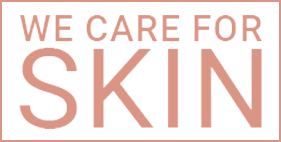There is a common belief that oily skin tends to age better and slower compared to other skin types. Although there is some truth to it, the reality is much more complex and nuanced. For one, it is true that those with oily skin develop much shallower wrinkles that are less apparent in the forehead. This is due to oily skin having higher dermal thickness in that region. However, the same cannot be said when it comes to crow’s feet (wrinkles in eye area). A study found that having oily or dry skin has no bearing in the development of wrinkles in that area. Knowing all these, it is clear that using anti-aging products for oily skin is more important than what you might have been led to believe.
A deeper look into skin aging
Skin aging can manifest in a lot of things, not just wrinkles, although it is one its most obvious and common sign. Other signs of skin aging can include pigmentation, enlarged pores, thinning of the skin, loss of tone and firmness, and damage to blood vessels.
Skin aging is a complex process influenced by a number of intrinsic (internal) and extrinsic (external) factors that ultimately leads to progressive loss of structural integrity and physiological function of the skin. Understanding the physiology of skin aging and its factors is vital for developing effective skincare regimen and anti-aging treatments.
Intrinsic Aging: Also known as chronological aging, intrinsic aging is the natural aging process that occurs as a consequence of time. This process is primarily influenced by genetic factors and the passage of time. As individuals age, there is a natural decline in the production of essential components such as collagen and elastin, leading to decreased skin elasticity and firmness.
Extrinsic Aging: Extrinsic aging is influenced by external factors. This type of aging is often preventable and can be attributed to various environmental and lifestyle elements such as sun exposure, pollution, smoking, repetitive muscle movements like squinting or frowning, diet, overall health, and even sleeping position.
An overview to oily skin
Oily skin is characterized by excess sebum production, giving the appearance of shiny and greasy skin. It is also often associated with enlarged pores and higher chances of having acne. The amount of sebum produced is directly proportional to the amount of sebum producing glands in the skin. This makes the dermis “thicker and sturdier” that could resist folding or creasing as with that in wrinkles. The moisturizing effect of sebum can also contribute to fine lines appearing less prominent in people with oily skin. There has also been evidence suggesting that sebum can actually offer some degree of photoprotection, but not enough to forego your sunscreens or sunblocks.
Similar to skin aging, oily skin is also determined by a number of factors such as genetic influence, diet, lifestyle, age, gender, and even seasonal variations.
While it's true that oily skin tends to age more gracefully than dry skin due to the difference in physiological structure and inherent moisture provided by sebum, it doesn't make it immune to the signs of aging. In fact, individuals with oily skin may still experience fine lines, wrinkles, and loss of elasticity over time making it more important to include anti-aging products for oily skin in your daily routine.
Anti-aging products for oily skin
We’ve heard the term “anti-aging” countless times at this point. It’s not only in the skincare industry that it is being used right now. Biotech companies are racing to understand aging at a molecular level, not only trying to stop it, but to ultimately reverse it. Although we still don’t have the technology to permanently stop or reverse aging, we can have an effective skincare regimen that could help slow down skin aging. Below are some of the anti-aging products for oily skin that you should have in your routine right now.
Cleanser: A good skincare routine usually starts with a good facial cleanser especially for those with oily skin since you don’t want sebum to build up and clog your pores and cause acne flare ups.
-
Salicylic acid: salicylic acid is ideal for oily skin, it exfoliates the skin, unclogs pores, and helps control excess oil production. It is widely popular in preventing and treating acne while promoting a smoother complexion. The maximum concentration of salicylic acid products you can get is 2%, so most of the products you will find in the market are at 2% or below. CeraVe SA Cleanser, Neutrogena, Klued, and The Inkey List are some of the more popular brands when it comes to salicylic acid cleansers.
-
Witch Hazel extract: Witch hazel extract is an ingredient that many love when it comes to facial cleansers. It is a natural botanical extract that has beneficial effects for acne-prone oily skin. Biore Witch Hazel Clarifying cleanser is a good option when you want to give it a try. Thayer’s is also an established brand when it comes to toners and their Witch Hazel toner is a crowd favorite.
-
Ceramides: Ceramides have been the rave and getting a lot of positive attention lately, thanks to their skin-barrier strengthening and repairing abilities. Ceramide facial cleansers can clean all the dirt and grime off your face without stripping it of its natural oils. It is one of the most common misconceptions of those with oily skin - that you need to remove all the oil on your face to combat oiliness. This actually causes irritation and triggers sebum production even more. CeraVe, La Roche Posay, and Paula’s Choice are some of the most well known brands when it comes to ceramide facial wash.
-
Green tea: Another natural ingredient that’s been getting all the hype lately is green tea extract. Green tea extract can soothe, balance, and detoxify the skin. It is also a powerful antioxidant that has anti-aging benefits. Innisfree has an entire lineup of products that features green tea extract.
Sun Protection: Sun exposure can cause an array of damage to the skin and it is one of the major contributors to premature aging.
-
Sunblock and Sunscreen: Anti-aging products with broad-spectrum sunscreen not only protect against harmful UV rays but also prevent sun-induced damage, like fine lines and hyperpigmentation that are commonly experienced by those who have oily skin. The American Academy of Dermatology Association recommends using a sunscreen with an SPF of at least 30, which blocks 97% of the sun's UVB rays.
Serums: Skin hydration is crucial even if you have oily skin. In selecting an anti-aging serum, it's essential to find a balance that addresses aging concerns without triggering further oil production or causing breakouts. Look for serums that are non-comedogenic and specifically formulated for oily or combination skin.
-
Hyaluronic acid: Hyaluronic acid is a lightweight and hydrating ingredient that acts by attracting and retaining moisture into the skin. All of that without clogging the pores. It helps make the skin look plump and reduces the appearance of fine lines and wrinkles.
-
Niacinamide: Another crowd favorite is niacinamide. Known for its versatility, it helps regulate oil production, reduce inflammation, and improve the overall texture of the skin. It's an excellent choice for addressing multiple signs of aging such as fine lines to enlarged pores.
-
Vitamin C: Antioxidants such as vitamin C serums protect the skin from environmental damage and neutralize free radicals. It also brightens the complexion and promotes collagen synthesis.
-
Retinol: One of the holy grail ingredients when it comes to anti-aging is retinol. It stimulates collagen production and accelerates cell turnover rate reducing the appearance of fine lines and wrinkles. Opt for a serum with a lower concentration to avoid potential irritation, and gradually increase usage. Brands like The Ordinary, Some by Mi, and Kiehl’s are good options when seeking out retinol products.
Moisturizer: Contrary to the notion that you don’t need to moisturize when you already have oily skin, moisturizer should be a staple in any oily-skin skincare regimen. Moisturizers do more than just moisturizing (obviously!). They are also excellent delivery systems for other nutrients that are beneficial to the skin.
-
Anti-aging creams: Most of the anti-aging creams today are marketed as solutions for wrinkles and fine lines. They achieve these effects through a combination of ingredients such as niacinamide, hyaluronic acid, AHA, BHA, and other retinoids. Olay, Neutrogena, and other well-known brands all boast a number of anti-aging product lines.
-
Oil-based moisturizers: It might be a surprise for most but yes, you can definitely use oil-based or oil-containing moisturizers even when you have oily skin. The key is to look for products that are non-comedogenic such as Jojoba oil. Jojoba oil shares structural similarity with skin sebum, leading to a smoothing effect and the prevention of excess skin flaking on dry skin. In oily skin, it helps reduce sebum production by giving the skin the moisture and hydration it needs without the pore-clogging effect sebum has.
Exfoliants: A key element in any oily-skin regimen is an exfoliant. Chemical (acids) as well as physical exfoliators can have varying effects depending on your exfoliation needs and skin type.
-
Glycolic acid: Brands like The Ordinary Glycolic Acid 7% Toning Solution, Paula’s Choice AHA, and The Inkey List Glycolic Acid Toner, can help in preventing sebum from clogging the pores which often leads to acne. Exfoliation is also a good way to avoid dull skin appearance, reduce wrinkles and fine lines, and achieve smoother skin texture.
Supplements: As the aging process unfolds, the production of collagen naturally decreases. Starting in the mid-20s, there is a gradual decline in collagen synthesis, leading to a loss of skin firmness and the onset of fine lines and wrinkles. The relationship between collagen and skin aging is intricate and fundamental to understanding the mechanisms behind the visible signs of aging.
-
Collagen Supplements: Collagen supplements are available in various forms such as powders or capsules. They aim to support the body's collagen production. Although the use of these supplements is still an area of ongoing research, preliminary evidence is already pointing in the right direction. Gloww Collagen is a great brand when considering collagen supplementation, it has a patented VeriSol® technology that ensures complete absorption and high bioavailability. It has also been shown to stimulate collagen production, which can aid in tightening, reducing wrinkles, and moisturizing the skin.
Diet: Studies have shown the effect of the food that we eat in helping combat the signs of skin aging. Below are some foods that can fight skin aging.
-
Berries
-
Nuts
-
Omega-3 rich foods (fish)
-
Green vegetables
-
Lycopene-rich foods
-
Green tea
We all want to stay young and look young but aging is just another reality of life. In the pursuit of ageless beauty one must remember, age is just a number, and everyone deserves to feel confident in their skin, regardless of its type.
References
-
American Academy of Dermatology Association. (2023). Sunscreen FAQs.
-
Farage, M. A., Miller, K. W., Elsner, P., & Maibach, H. I. (2008). Intrinsic and extrinsic factors in skin ageing: a review. International Journal of Cosmetic Science, 30(2), 87–95. https://doi.org/10.1111/j.1468-2494.2007.00415.x
-
Gad, H. A., Roberts, A., Hamzi, S. H., Gad, H. A., Touiss, I., Altyar, A. E., Kensara, O. A., & Ashour, M. L. (2021). Jojoba Oil: An Updated Comprehensive Review on Chemistry, Pharmaceutical Uses, and Toxicity. Polymers, 13(11), 1711. https://doi.org/10.3390/polym13111711
-
Metrus, L. (2023, July 17). The perfect oily skin skincare routine, according to dermatologists. Byrdie. https://www.byrdie.com/skincare-routine-for-oily-skin
-
Rud, M., & Hufton, C. (2023, July 6). The 15 Best Face Washes for Oily Skin of 2023, Tested & Reviewed. Byrdie. https://www.byrdie.com/best-face-washes-for-oily-skin-4584302
-
Sakuma, T. H., & Maibach, H. I. (2012). Oily Skin: An Overview. Skin Pharmacology and
-
Physiology, 25(5), 227–235. https://doi.org/10.1159/000338978
-
Tamatsu, Y., Tsukahara, K., Sugawara, Y., & Shimada, K. (2015). New finding that might explain why the skin wrinkles more on various parts of the face. Clinical Anatomy, 28(6), 745–752. https://doi.org/10.1002/ca.22571



